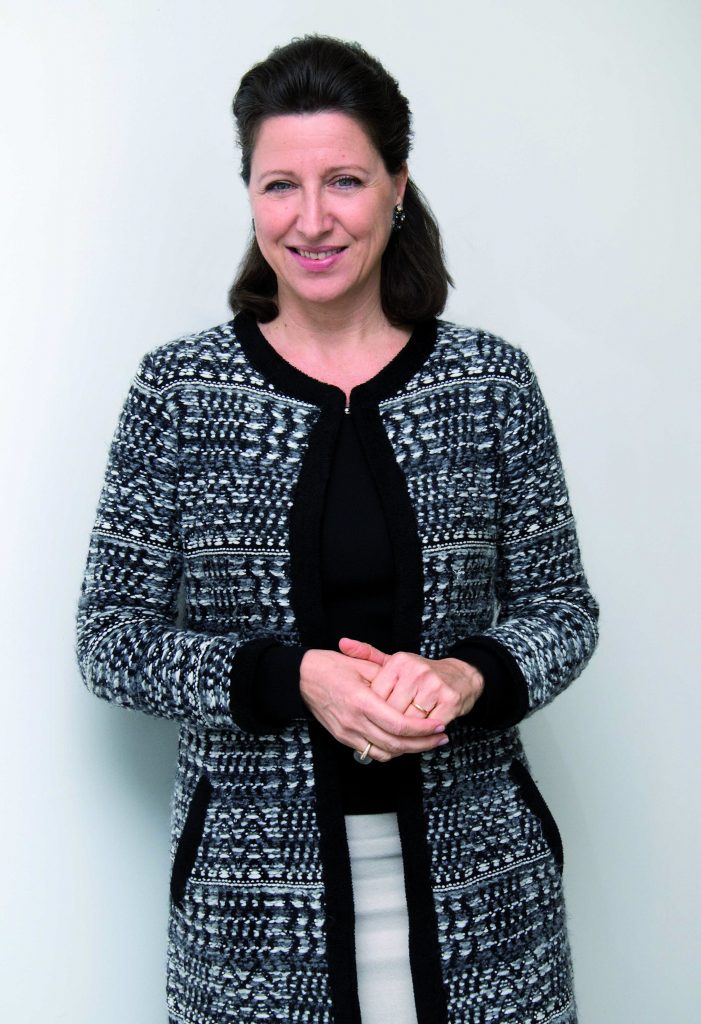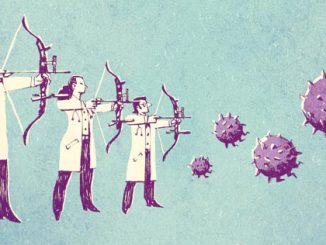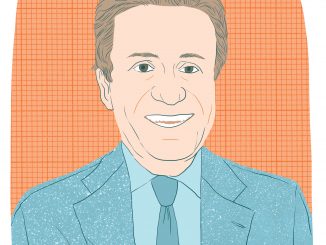A professor of haematology, specialising in bone marrow transplants and leukaemia, with a career that has spanned clinical practice, research, policy making and now political office – Agnès Buzyn has an unrivalled breadth of experience in tackling cancer. In 2017, after five years at the head of the French National Cancer Institute, INCa, she was appointed Minister for Solidarity and Health. Cancer World asked Agnès Buzyn how her time at INCa prepared her for her new responsibilities, and what tips she can offer those of us trying to influence government policy on cancer care.
Cancer World: What are the most valuable lessons you learned during your time leading the French National Cancer Institute that you can draw on in your present job as Health Minister?
Agnès Buzyn: When I was the head of the French National Cancer institute, I had the privilege of drawing up the Third Cancer Plan, which was very ambitious both in its scope and its goals.
Today, I continue to believe that the only way to really move the boundaries is to be ambitious and politically courageous.
CW: What are you learning in your new position that might offer helpful insight for leaders of Europe’s cancer community about how to influence policy makers and politicians at national and European level?

AB: In trying to influence policy makers, it is important to stress that cancer is a big concern for citizens, and it causes a lot of anxiety. It takes a toll on people’s social and economic wellbeing. But some cancers can be avoided by prevention policies, which must be considered as key elements in the fight against cancer.
When you are arguing your case to policy makers, I think it is very important to start from the scientific evidence, and to demonstrate the social consequences of cancer. You need to encourage them to see beyond the aspect of the public health expenditure resulting from this disease.
CW: All ministers have to balance competing priorities. How effectively are you able to coordinate policy with other ministers in relation to decisions that impact on cancer and health?
AB: French Cancer Plans have a somewhat unique governance, which involves the highest institutions of the State. The President receives an annual report drawn up by the committee leading the Plan. Ministers for Research and Health co-chair the committee, but other ministers are also involved – including Ministers of Education, Labour, the Environment. This guarantees that a wide range of aspects of the fight against cancer are taken into account.
The current Cancer Plan was launched in February 2014. This committee also integrates the chief executive officer of the French National Health Insurance Fund, the chairperson of the French National Cancer Institute, and associations representing patients and users of the health system.
This enables us to take into account different perspectives and points of view regarding our strategy, and prevents us from taking one-sided decisions.
Finally, the decisions are implemented through coordination by the National Cancer Institute. At the regional level, it is the regional health agencies that are responsible for the implementation of the Cancer Plan in their region. This is very important to enable our health system to adapt to all the specificities of our territories, which is essential in order to guarantee equal access to health care.
CW: If you had to name one thing, in terms of French cancer policy, that other countries could learn from, what would that be?
AB: We must open up our perspectives. We have to look for a cross-disciplinary approach, to use all the levers of actions: prevention, health care organisation, research.
The French National Cancer Institute carries out all these missions, and French Cancer Plans have always covered all these aspects. This, I think, is where the strength of our Cancer Plans lies.
CW: And if you had to name one aspect of cancer policy that another country gets right that you would like to introduce to France, what would that be?
AB: We can learn a lot from Northern countries. They have a strong capacity for mobilising their citizens regarding healthcare issues. They offer a good example, for instance, on prevention and healthly lifestyle interventions, such as vaccination coverage and promoting health through physical activity.
French Health Minister Agnès Buzyn is Professor of Haematology at the University Pierre-and-Marie-Curie in Paris. She spent a large part of her career as an academic haematologist and clinician at the University Paris Descartes – Necker Hospital, where she headed up the adult haematology intensive care and bone marrow transplant unit.
She spent several years as director of a research team on tumour immunology at the National Institute of Health and Medical Research (INSERM). Buzyn has also served on the boards of many national organisations, including as Chair of the Executive Board of the Radioprotection and Nuclear Safety Institute (IRSN) – a role which first brought her to public attention, during the Fukushima crisis.
She was President of the French National Cancer Institute INCa between 2011 and
2016, during which time she oversaw the development of the third iteration of France’s flaghsip national cancer plan, and became a familiar figure on the European cancer scene. Agnès Buzyn was profiled in 2013 in a Cover Story for Cancer World bit.ly/Buzyn_ CWCoverStory






Leave a Reply